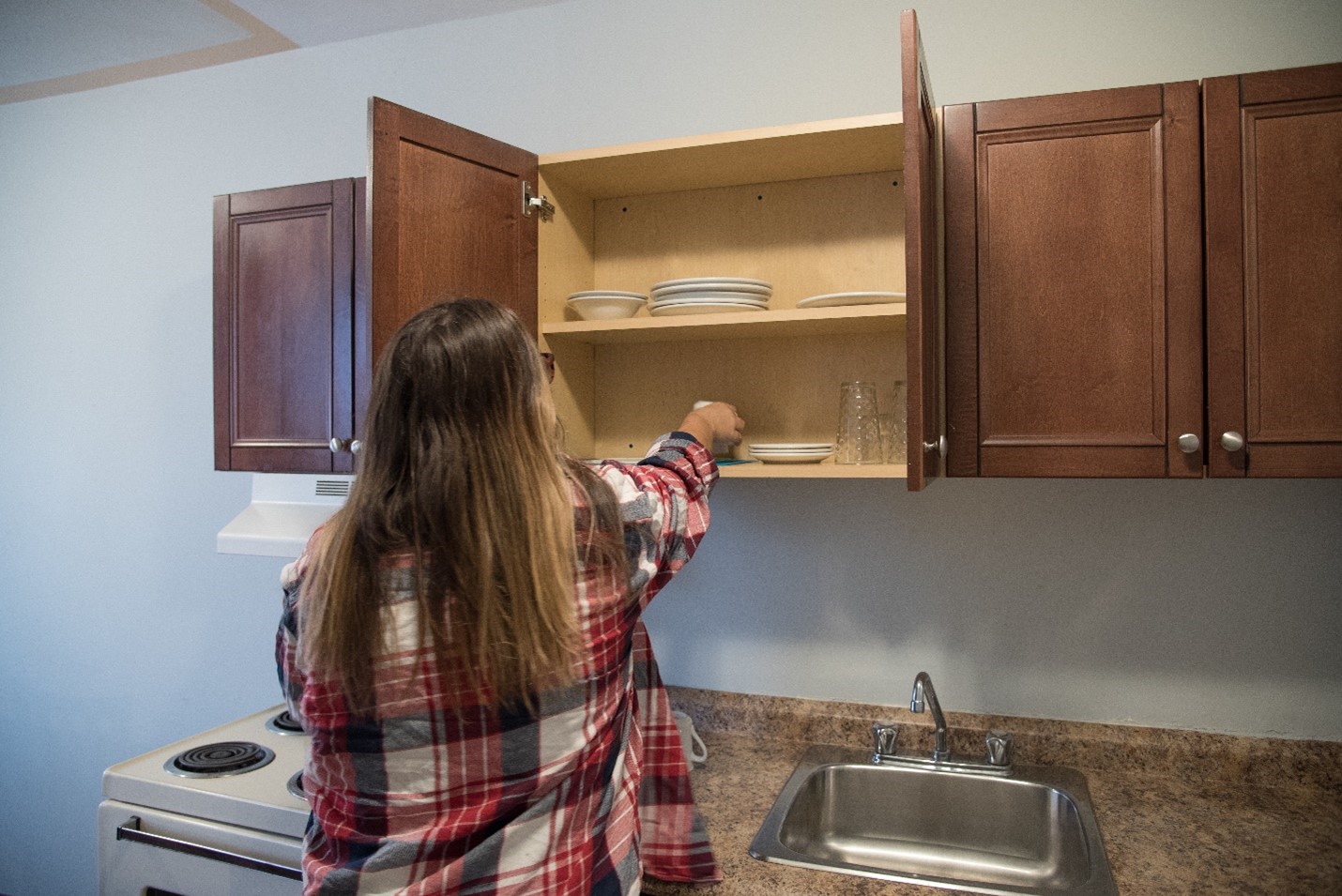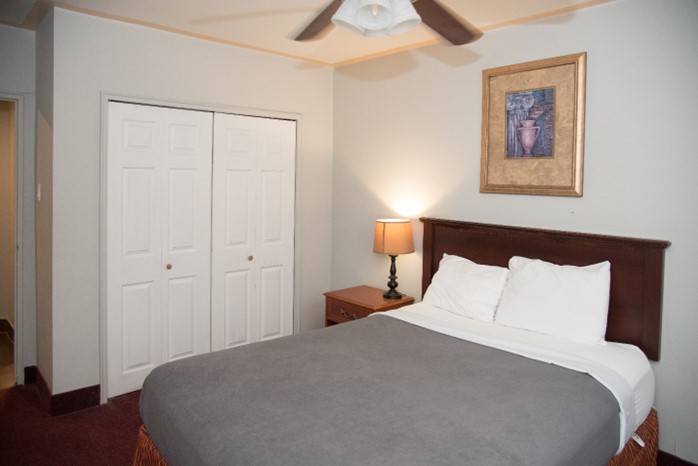The City of London is using $2.7 million over the next two years of Council-approved funding dedicated to London Cares Homeless Response Services (London Cares) to add 24 new highly supportive housing units at the House of Hope established in the fall of 2023. The initiative will convert 15 temporary resting space beds at 448 Horton Street to 24 furnished highly supportive housing units at 362 Dundas Street.
The funding, earmarked for either resting space beds or housing supports is a combination of roughly $2M in Municipal and $707K of Provincial Homeless Prevention Program funding. The housing supports investment builds on the success of highly supportive housing units first opened at House of Hope in October 2023 through a partnership between London Cares and London Health Sciences Centre (LHSC) and will bring more Londoners experiencing homelessness indoors into safe and supportive accommodation.
Highly supportive housing includes access to health and social services, such as mental health care, addiction treatment, educational resources, employment counselling and emergency food services. The goal is to provide support that will help residents achieve housing stability.
Highly supportive housing is a critical part of London's Whole of Community System Response endorsed by City Council in March 2023, which is London’s roadmap to help the most marginalized Londoners move safely inside, become stabilized, supported, and connected to appropriate housing. Through a combination of affordable housing and supportive services, highly supportive housing helps people live and thrive in the community.
Since October 2023, as part of a partnership between London Cares and LHSC, the House of Hope has been operating 25 highly supportive units at 362 Dundas Street.
- 74% reduction in emergency department visit volumes in the first three months compared with the same time period and the same cohort in 2022
- Two residents are now working
- No residents have been evicted
“We have seen dramatic results for the initial group of people who gained housing last October – beyond housing they have gained reconnection to family, building a community in helping each other, and improved health. We also recognize the impact that housing people with added supports has had in reducing strain on the larger systems of health and justice. With a physically and emotionally safe place to be, folks no longer need to seek refuge at the emergency department of the hospital and are able to be released into their own home rather than face custody. The positive impacts are many and immeasurable in someone’s well-being.”
Anne Armstrong, Executive Director, London Cares
“House of Hope is a living example of what we can achieve when we come together as a community. We’re not only bringing people indoors, we’re creating conditions for them to find stability and be treated with dignity. Every step forward to helping people come inside and access sustainable housing is easing the effects of this crisis on Londoners, community organizations, the business community, and the health system.”
Mayor Josh Morgan, City of London
“In the year following Council’s endorsement of The Whole of Community System Response, we’ve opened London’s first two health and homelessness Hubs with Atlohsa and YOU, created 93 new highly supportive housing units, and have seen innovative partnerships established in the community, like House of Hope. These are important milestones that are now making a difference in people’s lives.”
Kevin Dickins, Deputy City Manager, Social and Health Development, City of London.
“House of Hope is proof that housing is health care. By providing stable housing with on-site health and social services, highly supportive housing helps those with complex needs receive the care they need in the most appropriate setting. This is helping to reduce visits to our Emergency Departments and, most importantly, improving the lives of Londoners.”
Dr. Kevin Chan, Acting President and CEO, LHSC
How highly supportive housing fits into London's response to homelessness
The House of Hope is one of the first highly supportive housing initiatives in London, and was established with support and input from Home and Community Care Support Services, London InterCommunity Health Centre, and H.O.M.E program collaborators. The Sisters of St. Joseph, who run St. Joe's Café, are providing residents at least one hot meal per day, and Voyago Health, offers complimentary transportation services to the building once residents are ready to move in.
The newly funded spaces, which are a separate initiative from the City of London's Hubs Implementation Plan but part of the same pathway to sustainable housing, will assist people with complex health needs, including discharged hospital patients at risk of readmission due to experiencing chronic and persistent homelessness.

Above and below: Photographs showing the interior of a highly supportive housing unit at House of Hope, located at 362 Dundas Street.

More supportive housing units are also in the works across the community, such as the partnership between Indwell and major developers announced earlier this year to create up to 40 more highly supportive units at 46 Elmwood Place.
The Whole of Community System Response has developed a strategy to ultimately create 600 highly supportive housing units in London, which is outlined in an upcoming report, London’s Health & Homelessness Response: Highly Supportive Housing Plan, submitted to the March 26 agenda for City Council's Strategic Priorities and Policy Committee (SPPC).
For more information on the Whole of Community System Response, visit london.ca.
